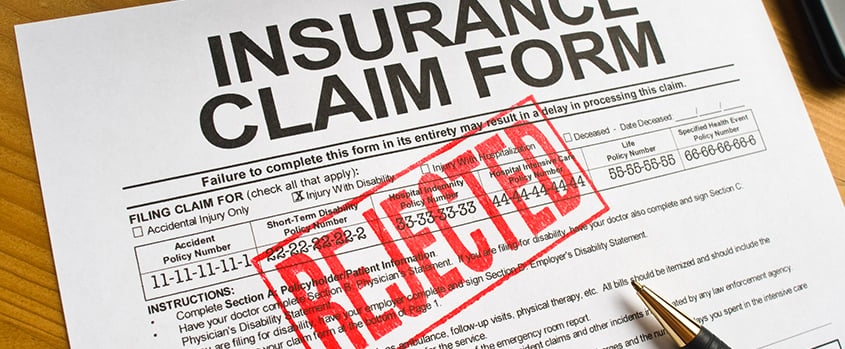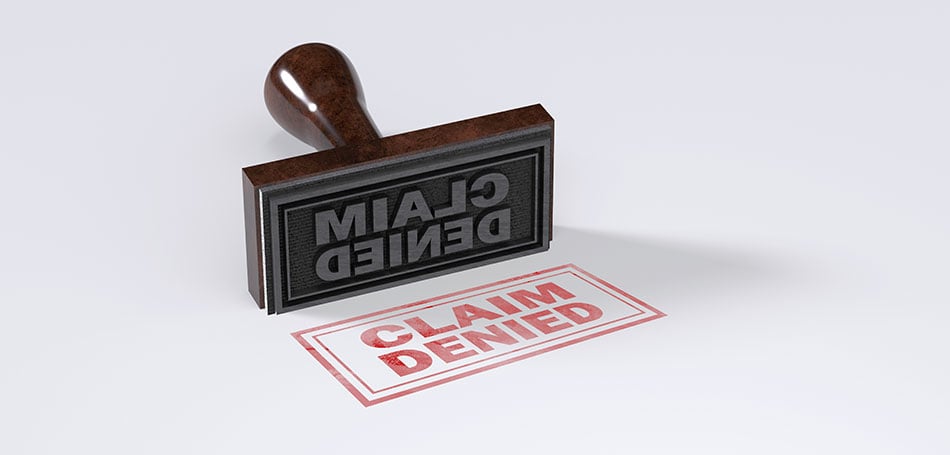
As a seasoned personal injury attorney with over 30 years of experience, I’ve encountered numerous cases where clients face an uphill battle with insurance companies. The denial of a claim by the other driver’s insurance company is a common and frustrating scenario. It’s a situation that requires careful navigation, informed by both professional expertise and personal understanding of the complexities involved.
Find Out Why Your Claim Was Denied
Understanding why your claim was denied is the first crucial step. Insurance companies can deny claims for various reasons:
- A lapse in coverage: This occurs if the policy has expired or payments were missed. During such a lapse, any accidents might not be covered.
- Insufficient coverage limits: Your policy may not cover all the damages due to low coverage limits.
- Involvement in illegal activities: Claims can be denied if the policyholder was breaking the law at the time of the accident, such as driving under the influence.
- Failing to notify the insurance company in time: Most policies require notification within a specific period after an accident.
- Shared liability: If you are partially at fault, it could affect your compensation.
Some Common Reasons Personal Car Insurance Might Deny a Claim
- The policy did not cover the driver or vehicle involved in the accident.
- The claim includes pre-existing injuries not related to the accident.
- The driver was distracted, for instance, texting while driving.
Steps to Take After Your Car Insurance Claim is Denied
Review Your Policy
Firstly, review your policy in detail. Understand its limits, exclusions, and conditions. This knowledge is essential for understanding the denial and planning your next move.
Gather Evidence
Collect all relevant evidence, such as police reports, eyewitness accounts, medical reports, and photographs of the accident scene. This information will be crucial in challenging the denial.
Contact Your Insurance Company
Communicate with your insurance company. Understand their reasons for the denial and discuss the possibility of an appeal.

How to Appeal a Denied Claim
- Talk to your insurance company: This is your first line of action. Clear communication can sometimes resolve misunderstandings quickly.
- Request an appraisal: If there’s a dispute over the value of the claim, use the appraisal clause in your policy.
- File a complaint with the state insurance department: If you believe the denial was in bad faith, contact your state insurance department.
- Seek legal advice: A lawyer specializing in car accidents can provide crucial guidance and representation.
Tips for Preventing Future Claim Denials
Maintain Accurate Information
Keep all information in your insurance policy updated. This includes personal details, vehicle information, and any changes in your driving record.
Choose Adequate Coverage
Selecting a policy with sufficient coverage limits is vital. It’s better to have more coverage than needed than to find yourself underinsured.
Understand Policy Exclusions
Knowing what your policy excludes is crucial. This knowledge can prevent surprises when filing a claim.
If the Other Driver is Denying Liability, Get Legal Help from Lamber Goodnow
When faced with a denial from the other driver’s insurance, seeking legal assistance is often the wisest course of action. At Lamber Goodnow, our team of experienced personal injury lawyers can provide invaluable guidance and representation. We understand the complexities of these cases and are dedicated to helping you navigate through them to achieve the best possible outcome.
Additional Considerations
Keep a Detailed Record
From the moment of the accident, keep a detailed record of everything related to the incident. This includes conversations with insurance representatives, medical treatments, and any expenses incurred due to the accident. This thorough documentation can be invaluable in disputing a claim denial.
Be Proactive in Communication
Regularly follow up with your insurance company throughout the claim process. Keeping the lines of communication open can prevent misunderstandings and ensure that your claim is being processed timely.
Understand the Appeals Process
Each insurance company has its appeals process. Familiarize yourself with this process and follow it carefully. This may involve submitting additional documentation or undergoing further assessments.
Consider Mediation or Arbitration
If direct negotiation doesn’t resolve the issue, mediation or arbitration might be a viable option. These alternative dispute resolution methods can be less adversarial and costly than going to court.
The Role of an Attorney
In complex cases, especially when large sums are at stake or the liability is disputed, the guidance of a lawyer is crucial. They can navigate the legal complexities, represent your interests, and work towards securing the compensation you deserve.
The Bottom Line
Navigating a denied insurance claim is undoubtedly challenging, but not insurmountable. Armed with the right information, a clear understanding of your policy, and possibly legal assistance, you can effectively contest a denial. Remember, in the world of insurance claims and liability, being well-informed and proactive is your best defense.
Frequently Asked Questions
Q: What Should I Do First If My Insurance Claim is Denied?
A: First, review the denial letter from your insurance company for the specific reasons for the denial. Next, thoroughly check your insurance policy to understand its terms and limitations. This will help you identify any areas where you might have grounds to contest the denial.
Q: How Can I Strengthen My Case After a Claim Denial?
A: Gathering comprehensive evidence is key. This includes obtaining a copy of the police report, statements from eyewitnesses, medical records related to the accident, and photographs of the accident scene. Detailed records of all communications with your insurance company are also crucial.
Q: Is It Worth Appealing a Denied Insurance Claim?
A: Yes, it’s often worth appealing, especially if you believe the denial was unjust or based on incorrect information. An appeal can lead to a reassessment of your case and potentially a different outcome. Consulting with a personal injury attorney can provide valuable insight into the viability of an appeal.
Q: When Should I Seek Legal Assistance for a Denied Claim?
A: Seek legal assistance if the appeal process is complex, if there’s a significant amount of money at stake, or if you believe the denial was made in bad faith. An experienced attorney, like those at Lamber Goodnow, can offer expert guidance and help you navigate the legal process more effectively.


